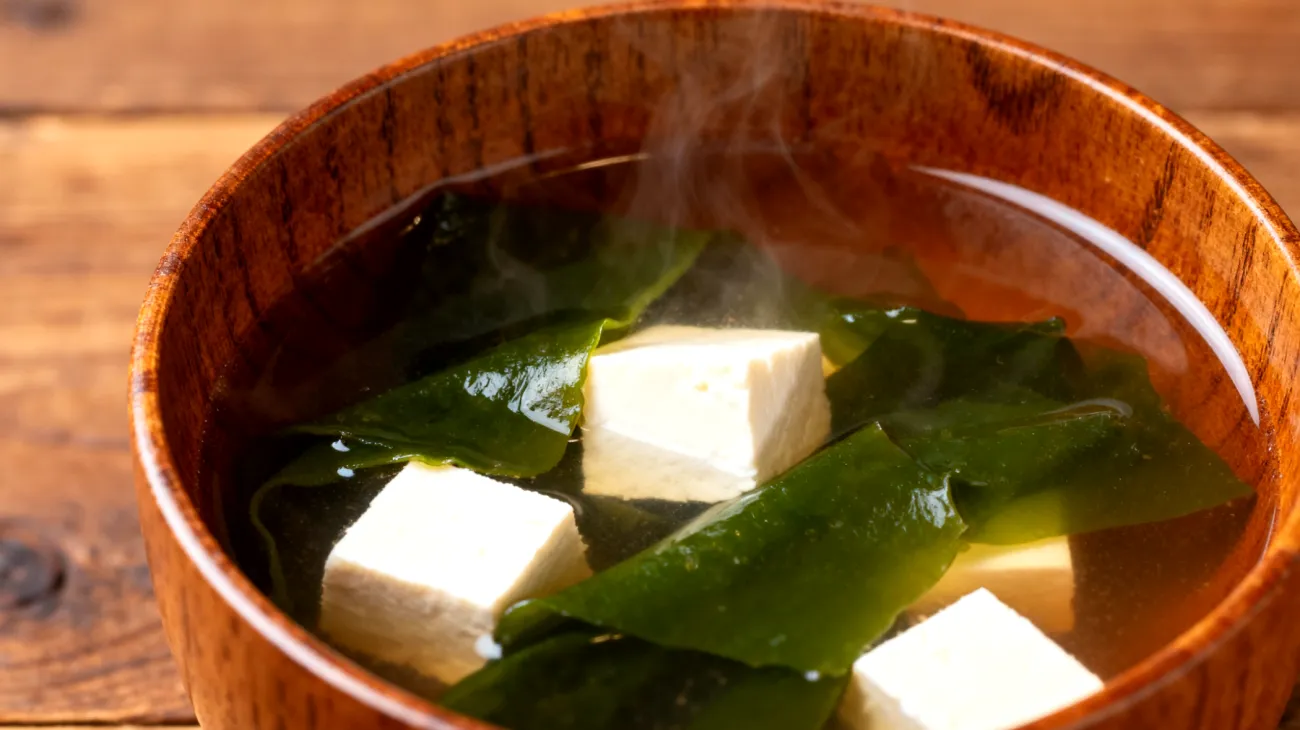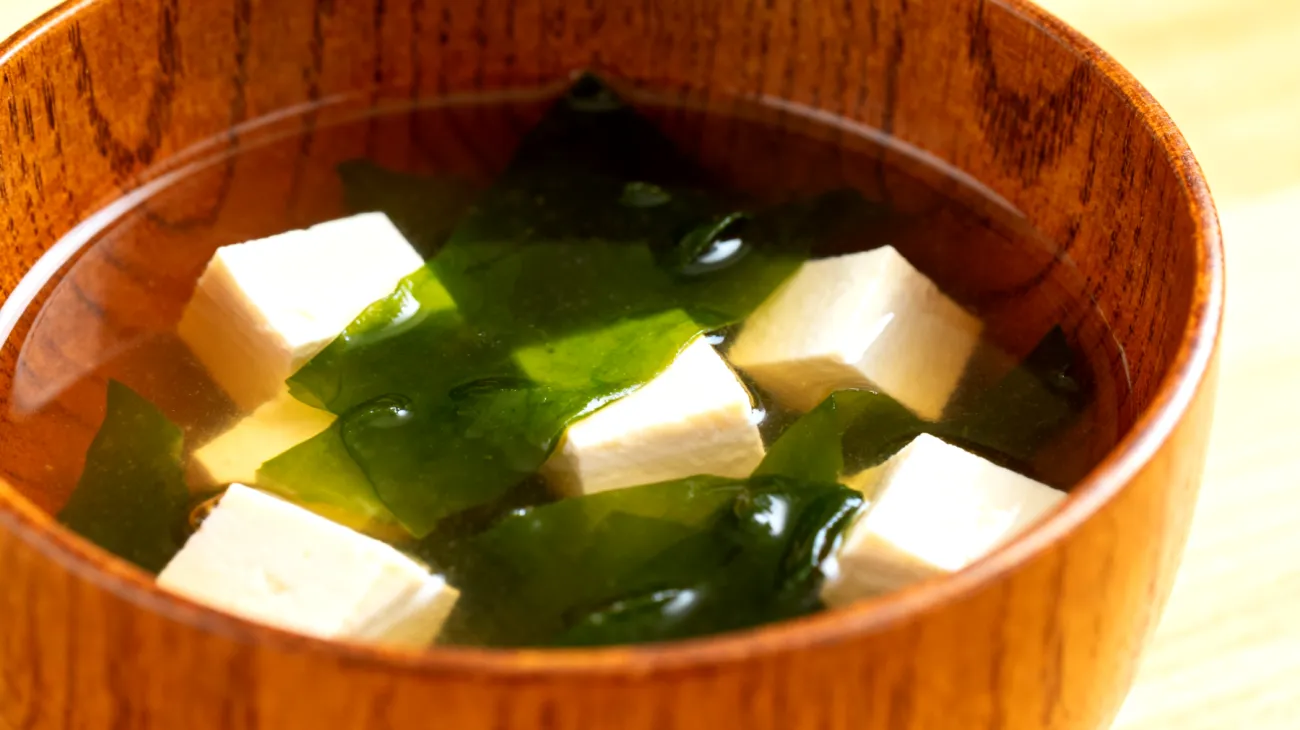The quiet hours before dawn often find university students hunched over textbooks, their minds racing through complex theories while their stomachs rumble with neglect. During these intense study periods, the temptation to grab processed snacks or skip meals entirely becomes overwhelming. Yet what if the secret to sustained mental clarity lay not in energy drinks or heavy comfort foods, but in a centuries-old Japanese bowl of liquid wisdom?
The Science Behind Evening Nourishment During Academic Stress
Research demonstrates that meal choices in the evening can influence sleep quality and next-day cognitive performance. Heavy, high-fat dinners may disrupt sleep cycles and lead to decreased alertness the following morning, while lighter, nutrient-dense evening meals are associated with better sleep and alertness the next day. Sleep quality is crucial for memory consolidation and academic performance; students who maintain consistent, restorative sleep at night perform better academically.
Miso soup with wakame seaweed and silken tofu emerges as a traditional Japanese dish that can serve as a healthy, nutrient-dense option for students during exam periods. This humble bowl delivers a sophisticated symphony of bioactive compounds that work together to support both immediate satiety and long-term wellness.
Unlocking the Probiotic Powerhouse
Miso paste is produced by fermenting soybeans with Aspergillus oryzae, a beneficial mold, along with lactic acid bacteria including some Lactobacillus species. While miso serves as a source of beneficial microbes, most commercially available miso contains relatively low counts of live probiotics by the time of consumption—especially if added to boiling water, as heat can destroy many beneficial bacteria.
There is increasing evidence that gut microbiota composition is linked to stress resilience and cognitive flexibility. A 2022 systematic review found that the gut-brain axis may influence mood and cognition, and interventions such as probiotics potentially improve cognitive and emotional outcomes during stress periods. The microorganisms in miso actively produce neurotransmitter precursors, including compounds that support serotonin synthesis, naturally promoting calm focus rather than jittery alertness.
The Umami Advantage for Appetite Regulation
Miso’s umami flavor profile engages taste receptors, particularly through glutamate and related compounds, that may contribute to increased satiety compared to some other flavor profiles. Studies indicate that umami can promote digestive efficiency and contribute to early satiety. This means a relatively small serving can satisfy hunger for hours, preventing the late-night snacking that disrupts study concentration and sleep patterns.
Wakame: The Ocean’s Mineral Treasury
The delicate green ribbons of wakame seaweed floating in your soup bowl contain one of nature’s most concentrated sources of bioavailable iodine. This essential mineral directly supports thyroid hormone synthesis—impacting metabolism, energy levels, and cognitive function, all crucial during academic crunch time.
Magnesium and potassium are present in wakame, both minerals that support muscle and nerve function. Magnesium in particular may aid sleep and stress regulation, helping students transition from intense study sessions to restorative sleep. The content varies depending on growing conditions and processing, but wakame consistently provides meaningful amounts of these essential minerals.

The seaweed’s natural alginates have been shown to bind certain heavy metals and reduce their reabsorption in the gut, supporting the body’s natural detoxification processes when students might be consuming more processed foods or spending extended time in stuffy library environments.
Silken Tofu: Protein Perfection for Evening Recovery
Tofu provides a complete amino acid profile and, as a plant-based protein, is easier to digest and less likely to disturb sleep compared to heavier animal proteins. Silken tofu contains tryptophan, an amino acid precursor for serotonin and melatonin, which are involved in sleep regulation. This naturally supports the body’s preparation for sleep while ensuring adequate protein for overnight muscle and brain tissue repair.
The soft texture of silken tofu facilitates easier digestion and generally reduces the likelihood of gastrointestinal discomfort that can interfere with sleep or study. Its minimal chewing requirement and quick gastric transit make it an ideal evening protein source during demanding academic periods.
Strategic Preparation for Academic Success
Smart students can prepare miso soup in advance and store portions for quick reheating throughout the week. The flavors continue to meld and generally improve after refrigeration, making this both a practical and delicious option for busy students navigating exam periods.
Timing and Consumption Technique
- Consume 2-3 hours before intended sleep time to support digestion and sleep quality
- Eat slowly, allowing warm liquids to help signal fullness naturally
- If more energy is needed, include a small portion of whole grains for additional sustained carbohydrates
- Avoid adding extra salt or soy sauce, since miso’s sodium content is already substantial
Important Considerations for Optimal Benefits
Students with thyroid disorders should consult their healthcare provider before frequent consumption of wakame due to its high iodine content and potential interaction with thyroid medications. Excessive iodine intake is possible from regular consumption of iodine-rich seaweeds, making medical guidance essential for those with pre-existing conditions.
For maximum probiotic benefit, add miso paste after removing soup from heat. This crucial step preserves beneficial bacteria that high temperatures would otherwise destroy, ensuring you receive the full spectrum of fermented food benefits.
This ancient Japanese comfort food represents a strategic, nutrient-dense addition to the student’s meal repertoire. Supporting restorative sleep, digestive health, and cognitive function when consumed as part of a balanced, varied diet, miso soup with wakame and tofu offers practical nourishment that aligns with academic demands. In a world of complex supplement regimens and expensive superfoods, sometimes the most profound wellness solutions come wrapped in simplicity, waiting quietly in a ceramic bowl.
Indice dei contenuti

